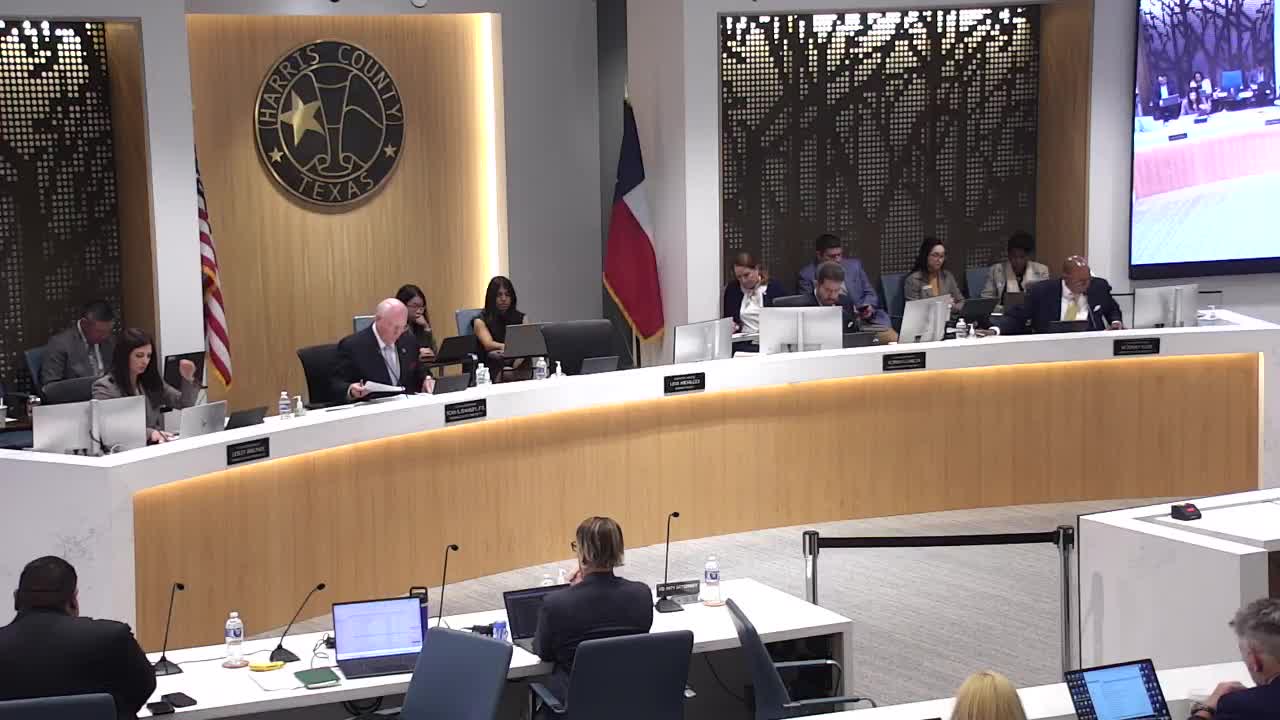Harris County adopts construction worksite safety policy after hours of testimony
Get AI-powered insights, summaries, and transcripts
Subscribe
Summary
Harris County Commissioners Court on Nov. 14 adopted a new countywide worksite safety policy for county-funded construction projects after public testimony from labor groups, contractors and worker advocates and a divided debate about timeline and industry input.
Harris County Commissioners Court adopted a new worksite safety policy intended to strengthen safety standards, inspections and enforcement on county‑funded construction projects.
Commissioner Ellis, who co-sponsored the item, framed the change as an effort to reduce what he called an unacceptable toll on workers: “Every worker deserves to come home safe at the end of the day,” Ellis said while describing county and state construction fatality statistics. He cited county figures and a 2023 statewide total of 564 workplace deaths as evidence of systemic problems the policy seeks to address.
The policy, which court staff and the county attorney said had been legally vetted, establishes real‑time inspections on county projects, a worker hotline, a stakeholder worksite safety committee and new reporting and audit requirements. Supporters at the meeting included Amy Zackmeier (New Economy), Linda Morales (Gulf Coast Area Labor Federation) and advocates from Workers’ Defense Project, who urged the court to adopt enforceable standards rather than voluntary guidelines.
Opposition focused not on the goal of safety but on the process and potential compliance burden. Commissioner Ramsey called the timeline “rushed,” warned the policy could impose heavy administrative costs on small, family‑run contractors and urged more input from industry groups and the Port of Houston. “Anything this important shouldn’t be rushed,” Ramsey said, arguing the county had only a month to assemble the draft.
County staff told the court that the draft reflects input from labor, industry and county working groups and that the county would continue to refine implementation, including an implementation plan and an oversight committee. County Attorney’s Office counsel said legal review had been completed and raised no immediate statutory concerns.
After discussion, Commissioners Ellis and Briones moved to adopt the policy; the motion carried and the court approved the measure. Court documents and staff said additional implementation details and an operational plan would follow, including training, data collection and a timeline for enforcement.
The court’s action directs county departments to finalize implementation steps and report back as the new procedures are rolled out.
